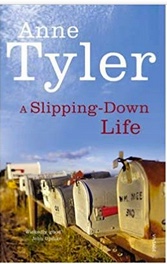I read seven books this month. Some memoir,
some crime, some Anne Tyler …
Drawn
from Memory by Ernest H. Shepard
Delightfully written, and of course
delightfully illustrated, by the artist best known for his Winnie-the-Pooh
drawings. This is an account of his childhood (b. 1879) in St John’s Wood,
London – happy, albeit blighted by his mother’s untimely death and the family’s
financial precariousness. His talent for art was encouraged from an early age
and he had a large quantity of splendid Victorian aunts.
Drawn
from Life by Ernest H. Shepard
The young artist is now grown up and has fallen
in love with a fellow art student but he has not yet made a name for himself.
Wish there had been a third volume. I learned though on the Internet that he
lived to be ninety-seven and that he eventually came to resent ‘that silly old
bear’, feeling it overshadowed his other work.
These are books we’ve had in the house for
years. They were bought in a second-hand bookshop, a present to Mr B in the
early days of our acquaintance (I know – how nice of me!); although they are
such lovely old editions it’s a shame I spoilt them with an inscription and an
affectionate message …
Both titles have been recently been made
available again by the wonderful Slightly Foxed .
Postern of Fate by Agatha Christie
As youngsters, my sister and I read and
reread our ‘Agathas’. We had every single title and when the parental home was
downsized we divided the collection between us – we tossed a coin and the
‘winner’ got the first/third/fifth etc book on the long shelf. We’re not inclined to fall out so I
wasn't mad – honestly – when our mutual favourite, a one-off called The Man in the Brown Suit, fell to her.
When I was staying with her this month I
picked up The Postern of Fate to read
one evening. It’s a Tommy and Tuppence story (the last one, after The Secret Adversary, N or M, By the Pricking of my Thumbs and Partners in Crime, all reread fairly recently, all enjoyable).
I must have read Postern of Fate
before but this time round I could hardly bear to finish it. The plot (insofar
as it is understandable) and its rather feeble resolution are only part of the
problem. It’s the exposition in the interminable conversations – T and T have
been married for many years so why do they need to tell each other things
they know already? eg ‘Betty, our adopted
daughter, went to Africa,’ said Tommy. ‘Remember when we had our own business,
the detective agency,’ said Tuppence.’
To be fair, the Queen of Crime was
eighty-three when she wrote it but I think her publishers could have done her a
favour and kept it in the bottom drawer.
The Midnight Line by Lee Child
Charity shop buy. Spotting a ring in a junk
shop window sends Jack Reacher off on a chase to find the owner – because he
know it’s a ring hard won, awarded from the same military academy that he went
to himself. It’s small so he surmises it belonged to a woman who must be in
dire straits to need to sell it. And indeed when he finds her in the wilds of
Wyoming she is in need of all kinds of help. His best, in my opinion.
Past Tense by Lee Child
Charity shop buy. The latest one, great title. Our hero helps
a young Canadian couple who have got themselves into a life-threatening pickle.
Oh, and he has a delve into his father’s history.
As always, after reading a Jack Reacher, I
wonder if it is possible to live the itinerant life he does but not look (and smell)
like you do. His only luggage is his toothbrush (no mention of toothpaste).
Every so often he buys a new shirt and jeans, discarding the old ones, but
there is no mention of, ahem, unmentionables. When he has a shower he uses a
‘whole bar of soap’, but that’s the other thing – he always has enough money
for a meal, to pay for a motel room, ‘quarters’ to make phone calls, but we
never hear of him going to a bank or an ATM. Can you even have a bank account
without a permanent address? Can you pay for motel rooms in cash these days?
I don’t want such details to hold up the
action but, you know, I worry about these things.
The Seagull by Ann Cleeves
The latest Vera – one of my favourite
fictional detectives. (Since you ask, my number one favourite is Inspector
Wexford in the Ruth Rendell novels.) As in other titles in the series, there is
a crime which has its roots in the past, back to Vera’s father’s shady world of
birds’-egg-collecting and raptor-stealing.
A Slipping Down Life by Anne Tyler
Charity shop buy. One of her earliest
titles, published in 1969, and one I’ve never read before.
Evie Decker is a rather lumpy schoolgirl
who has a crush on Bertram 'Drumstrings' Casey, a local musician, so much so
that she etches his name on her forehead with a nail scissors (please don’t try
this at home). This has the unexpected effect of raising his profile and
popularity for a while and a relationship between the two of them ensues.
I thought Drum’s song-writing technique was
pretty neat (as they say in the US) – among the lyrics are short, random
phrases/sentences that he’s overheard; these he speaks rather than sings.
Unfortunately for him, the punters at the Unicorn get fed up with his original
style. His star falls and Evie, who’s had to do some fast growing up, moves on.








No comments:
Post a Comment